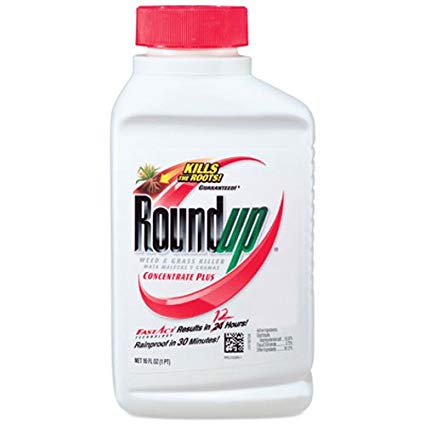Bayer AG has agreed to pay $39.5 million to resolve allegations that its Monsanto subsidiary made false and misleading claims in advertisements about Roundup and the potential health risks the controversial weed killer may pose for humans and animals. As part of the settlement agreement, the company will remove from the Roundup Weed and Grass Killer label, language stating that Roundup’s active ingredient, glyphosate, targets an enzyme only found in plants. Plaintiffs in the lawsuit alleged that the powerful chemical attacks an enzyme also found in humans and some animals. If you believe you have been adversely affected by side effects of Roundup weed killer, our consumer advocates at Leading Justice can help. Call us today to find out if you may be eligible to file a Roundup cancer claim against Bayer and Monsanto.
Bayer Facing Thousands of Roundup Cancer Lawsuits
Roundup is the brand name of a broad-spectrum, glyphosate-based herbicide used by everyone from farmers to gardeners to foresters to homeowners, to control unwanted weeds. Roundup was originally produced by Monsanto, which was acquired by Bayer in 2018, and the herbicide is designed to work by inhibiting a key enzyme that plants need to produce other proteins essential to growth. For years, Monsanto quelled concerns about the safety of Roundup by claiming that the enzyme glyphosate targets is only found in plants, not in humans or animals. However, the plaintiffs involved in this latest class action lawsuit, filed against Bayer in federal court in Kansas City, Missouri last month, say that these claims were false and misleading.
According to allegations raised in the lawsuit, which focused on Monsanto’s claims about Roundup Weed & Grass Killer, glyphosate also affects an enzyme in humans and animals that fortifies the immune system, digestion and brain function. The Roundup false claims settlement comes as Bayer is working to resolve more than 13,000 product liability lawsuits brought on behalf of consumers who blame exposure to Roundup’s active ingredient for their diagnoses of non-Hodgkin’s lymphoma and other types of cancer. Still, glyphosate remains the most widely used herbicide in the United States and worldwide, despite a growing body of evidence linking the weed killer to an increased risk of cancer.
Studies Establish Potential Link Between Roundup and Cancer
Research examining the toxic and carcinogenic (cancer-causing) effects of exposure to glyphosate and Roundup weed killer dates back decades. In one of the earliest animal studies, published in 1981, researchers found that glyphosate exposure was associated with an increased risk of tumor growth in the testes of male rats and possible thyroid carcinomas in female rats. A 1990 study also detailed “high incidences of pancreatic islet cell tumors” in male rats exposed to glyphosate. A Swedish study published in the International Journal of Cancer in 2008 found that individuals exposed to Roundup for more than 10 days had a 2.63-times increased risk of non-Hodgkin’s lymphoma compared to those not exposed to Roundup.
And the studies just keep on coming. In 2017, the Journal of Toxicology published research analyzing the impact of pesticides on the DNA of lymphocytes, a type of white blood cell found in the lymphatic system. The researchers involved in the study concluded that glyphosate could cause a type of DNA damage that can lead to cancer, including non-Hodgkin’s lymphoma. In 2019, an animal study published in the Journal of Hematology and Oncology concluded that glyphosate activates an enzyme known to play an important role in genetic mutations that lead to non-Hodgkin’s lymphoma and multiple myeloma. That same year, a report from researchers at the University of California, Berkeley, the University of Washington and the Icahn School of Medicine in New York described what they called a “compelling link” between exposure to glyphosate-based herbicides like Roundup and the development of non-Hodgkin’s lymphoma.
Bayer Under Pressure to Reach Settlement in Roundup Litigation
Bayer lost the first three Roundup cancer cases to go to trial, which resulted in a combined damages total of $191 million. In the wake of these massive jury trial losses, Bayer is under a great deal of pressure to reach a Roundup cancer settlement and avoid additional trial dates set to take place this year. More than half a dozen Roundup cases have already been postponed in order to give the parties more time to reach an agreement. In early March, it was reported that Bayer had reached a tentative agreement that could resolve thousands of Roundup cases, but an official settlement announcement has yet to be made. According to experts, a Roundup settlement would ultimately cost Bayer between $10 billion and $12 billion.




